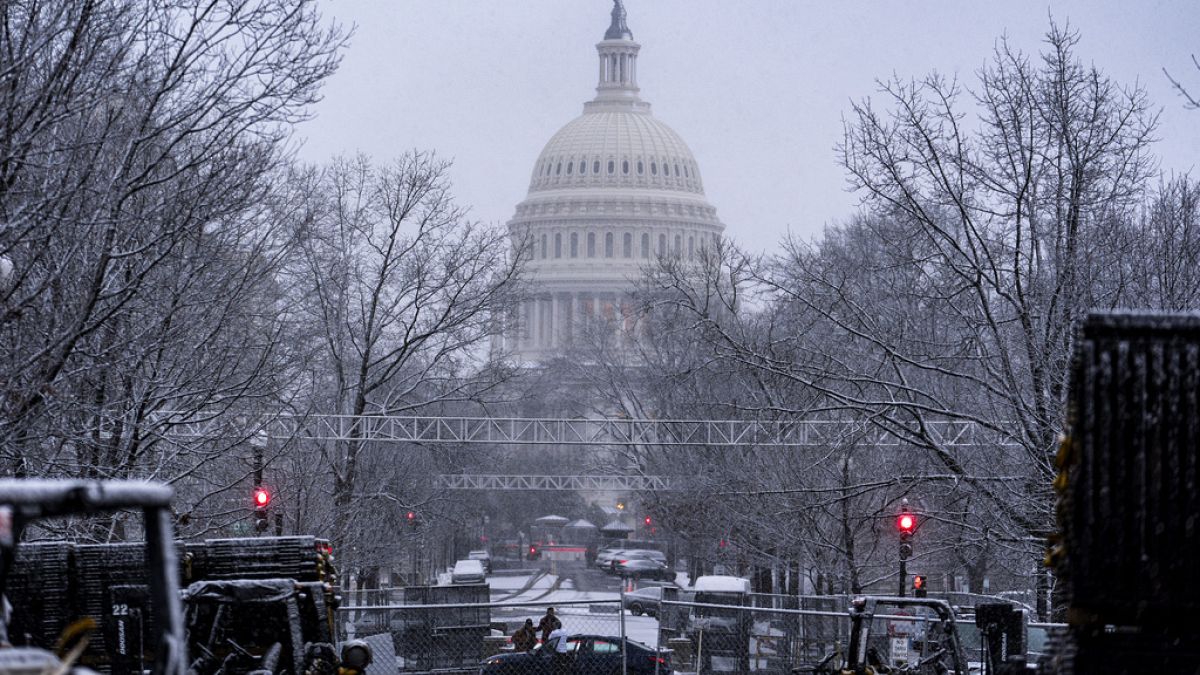Vermont
Vermont men’s hockey coach fired after probe into communications with student

The University of Vermont fired men’s hockey coach Todd Woodcroft on Tuesday after an investigation into “inappropriate” communications with a student at the school. The conduct being investigated involved “inappropriate text messages with a UVM student on multiple occasions that failed to maintain professional boundaries,” according to UVM athletics director Jeff Schulman.
“The University of Vermont Athletic Department has high expectations for the conduct of our coaches and all involved with our department,” Schulman said in a statement. “After reviewing the findings of an investigation conducted by UVM’s Office of Affirmative Action and Equal Opportunity that was completed this week, it is clear that Coach Woodcroft failed to meet those expectations.”
It is not immediately clear when the investigation concluded. The Athletic asked Woodcroft on July 7 whether he was under investigation.
“No, that is not accurate,” he replied.
The Athletic emailed UVM on the same day asking whether Woodcroft was placed on leave. On July 10, in response to that email, a UVM spokesperson declined to comment, citing “standing practice to not comment on personnel matters.”
Later Tuesday, Woodcroft’s attorney, Andrew Miltenberg, released a statement.
“We vehemently disagree with the process and the findings of a proceeding that lacked fundamental fairness and due process,” Miltenberg told The Athletic. “We strongly believe the University’s decision was contrary to the facts and the law. We intend to pursue justice for Mr. Woodcroft, who has been an outstanding coach and community advocate for over two decades.”
Woodcroft became the coach of Vermont on April 15, 2020. Prior to Vermont, Woodcroft was an assistant coach for four seasons with the Winnipeg Jets. He also spent three seasons as a scouting director and professional scout with the Calgary Flames.
Steve Wiedler will be Vermont’s interim coach for the 2023-24 season.
“The team and I have tremendous confidence in Coach Wiedler’s ability to successfully lead our program,” Schulman said. “He has played a major role in the recruitment and development of our current players and will step into this important role with the full support of our team and his Athletic Department colleagues.”
(Photo: Charles Krupa / AP)

Vermont
Hinesburg teen missing since Friday, police say

HINESBURG, Vt. (WCAX) – According to information posted by Hinesburg Police Department, 14-year-old Ava Norful was last seen on Friday in Hinesburg.
She is described as five feet six inches tall, about 120 pounds, wearing a blue ‘Rams’ sweatshirt with purple sneakers.
Anyone with information is asked to call state police.
Copyright 2025 WCAX. All rights reserved.
Vermont
Driver arrested in Vermont after crashing car, showed signs of impairment

Vermont State Police tell us they arrested 23-year-old Caylin G. Clavier of Easthampton, MA on Saturday night following a vehicle crash.
Police say they responded near the intersection of Vermont Route 11 and Route 30 in the Town of Winhall around 10:10 p.m., when they discovered a 2004 Ford Ranger over the guardrail.
Officers made contact with the vehicle’s operator, who was identified as Clavier.
They say Clavier displayed several signs of impairment, and she was placed under arrest for suspicion of DUI. She was taken to the Manchester Police Department for processing.
She was charged with a DUI and released on a citation, said police.
Vermont
Watch: Vermont man braves icy waters to save dog from drowning in a 'selfless' act – The Times of India

In a heroic act, a Vermont man leaped into freezing waters on Friday to rescue a dog struggling in the icy Winooski River, the New York Post reports.
Chris MacRitchie, accompanied by his family in Berlin, spotted the distressed dog while going through a Dunkin’ Donuts drive-thru. He quickly climbed down the embankment and entered the river to save the dog.
The courageous rescue was recorded by his son and widely shared online.
“It was one of those moments where you have to make a decision,” MacRitchie said. “I felt I was obligated to at least try to fetch this dog out of the river, as I have two dogs myself, and I would hope someone would do that for them if they were in that spot.”
The footage shows MacRitchie, dressed in a T-shirt and sweats, wading through the icy water as his wife encourages him. Despite the biting cold, his main concern was the river’s depth.
“I didn’t know if it was 20 feet or 2 feet,” he said. “When I broke through and it was waist-high, I thought, ‘OK, this isn’t that bad. Yeah, it’s cold, but I feel this is a very doable situation.’”
MacRitchie successfully pulled the shivering dog to safety, where his wife wrapped it in a sweatshirt. The dog’s owner, Morgan Cerasoli, was overwhelmed with gratitude when MacRitchie called her using the number on the dog’s tag.
Cerasoli, who had been searching for Arizona, her 7-year-old rescue mutt, since Thursday, described her reaction as emotional. “I started crying, and I told him, ‘Oh, my God, I love you,’” she said.
Now reunited with Arizona, who is recovering well, Cerasoli described the rescue as “brave, selfless, and commendable.” She added, “It’s everything we’re meant to be on this Earth.”
-

 Science1 week ago
Science1 week agoMetro will offer free rides in L.A. through Sunday due to fires
-
/cdn.vox-cdn.com/uploads/chorus_asset/file/23935558/acastro_STK103__01.jpg)
/cdn.vox-cdn.com/uploads/chorus_asset/file/23935558/acastro_STK103__01.jpg) Technology1 week ago
Technology1 week agoAmazon Prime will shut down its clothing try-on program
-
/cdn.vox-cdn.com/uploads/chorus_asset/file/25826211/lorealcellbioprint.jpg)
/cdn.vox-cdn.com/uploads/chorus_asset/file/25826211/lorealcellbioprint.jpg) Technology1 week ago
Technology1 week agoL’Oréal’s new skincare gadget told me I should try retinol
-
/cdn.vox-cdn.com/uploads/chorus_asset/file/25832751/2192581677.jpg)
/cdn.vox-cdn.com/uploads/chorus_asset/file/25832751/2192581677.jpg) Technology5 days ago
Technology5 days agoSuper Bowl LIX will stream for free on Tubi
-

 Business6 days ago
Business6 days agoWhy TikTok Users Are Downloading ‘Red Note,’ the Chinese App
-
/cdn.vox-cdn.com/uploads/chorus_asset/file/25835602/Switch_DonkeyKongCountryReturnsHD_scrn_19.png)
/cdn.vox-cdn.com/uploads/chorus_asset/file/25835602/Switch_DonkeyKongCountryReturnsHD_scrn_19.png) Technology3 days ago
Technology3 days agoNintendo omits original Donkey Kong Country Returns team from the remaster’s credits
-

 Politics1 week ago
Politics1 week agoTrump to be sentenced in New York criminal trial
-

 Culture2 days ago
Culture2 days agoAmerican men can’t win Olympic cross-country skiing medals — or can they?








/cdn.vox-cdn.com/uploads/chorus_asset/file/25838949/005NAuPugy1hxqapsuog0j3332222npe__1_.jpg)










